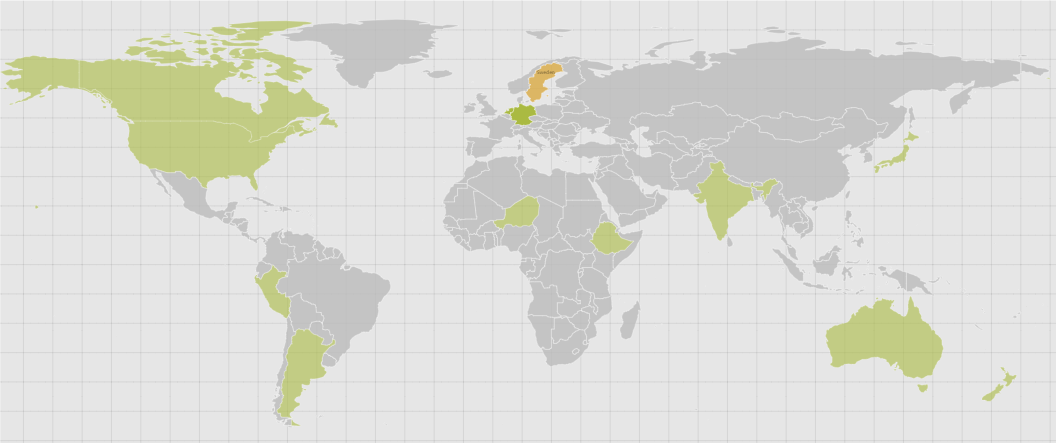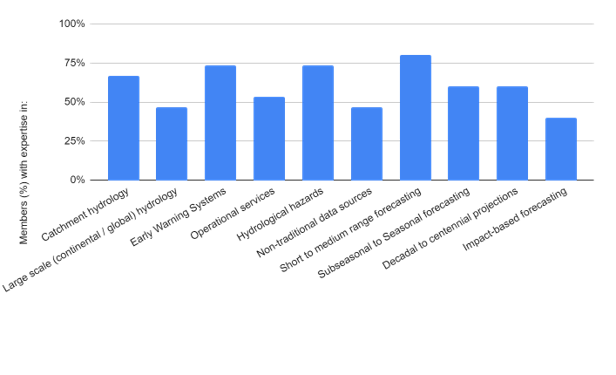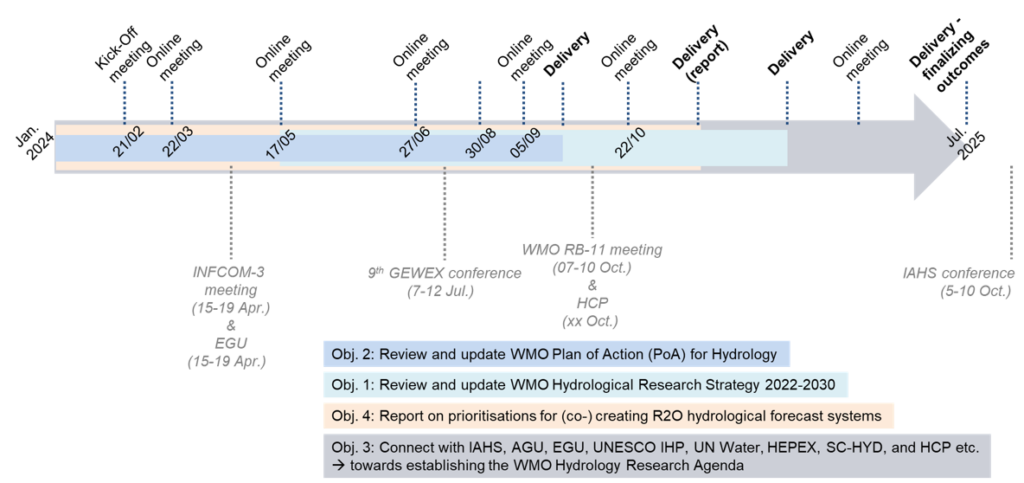WMO Contributes to Shaping the Future of Operational Hydrological Research
by Ilias Pechlivanidis and James Bennett
Are you aware of the role of the World Meteorological Organization (WMO) Research Board? Maybe of the WMO Plan of Action for Hydrology and the Hydrological Research Strategy 2022-2030?
If not, don’t worry! In this blog we aim to increase awareness to the HEPEX community on the role that WMO and its Research Board have had in contributing to the future of operational hydrology research.
In brief, the purpose of the Research Board is to translate the strategic aims of WMO and the decisions of Congress and the Executive Council into overarching scientific research strategies. The Research Board plays a critical role (1) as the primary link between the international research community and the WMO, particularly in fields such as weather, climate, water, and related environmental and social sciences, and (2) as a bridge between the international scientific community and WMO to identify scientific and technological gaps, explore opportunities and synergies, support capacity development, and foster coordination and knowledge exchange among stakeholders. The priorities of the research are shaped by the needs of WMO Member States and informed by active engagement with a wide range of stakeholders, including scientists, practitioners, policymakers, and civil society from diverse regions and disciplines.
Earlier this year, the Research Board approved the establishment of a Task Team on Hydrology Research (named TT-HydroResearch) to coordinate with the hydrology activities within the World Weather Research Programme (WWRP), World Climate Research Programme (WCRP) and the Global Atmosphere Watch Programme (GAW). In short, TT-HydroResearch will facilitate linkages between the Research Board and global and regional hydrological research initiatives. A team of about 15 international hydrology experts is approved to fulfil ambitious, yet crucial, objectives related to hydrology research.

In particular, TT-HydroResearch aims to:
- Review, update and oversee the implementation of WMO Hydrology Research Strategy
- Review, update and oversee the implementation of the actions related to the WMO RB in the WMO Plan of Action for Hydrology
- Recommend the establishment of a subsidiary body (Expert Team) or research program under the Research Board to lead WMO’s Hydrology Research Agenda
- Identify research priorities for improving hydrological predictions across spatial scales and time horizons

Currently the team is focusing on reviewing and updating the WMO Plan of Action for Hydrology so that activities have clear descriptions, milestones, and expected outcomes. Moreover, a report is currently being compiled identifying the key research priorities for improving hydrological predictions across spatial scales and time horizons, while setting also a roadmap of evolved hydrological services within the UN Early Warning for All (EW4All) initiative. Over the upcoming 12 months, TT-HydroResearch will review and revise the actions proposed in the WMO Hydrological Research Strategy and suggest possible changes to the WMO Research Board and the Hydrological Coordination Panel (HCP).

Expected Questions:
Q: Which are the current achievements of the Task Team?
A: The Research Board leads some activities in the Plan of Action of Hydrology and those have been revised and endorsed by the members. We are also close to submitting an article on Strategic Innovations in Research-to-Operations Hydrological Forecasting.
Q: Is there a website for this Task Team?
A: Yes, kindly check the TT-HydroResearch website
Q: Will TT-HydroResearch be at the next HEPEX 2025 workshop?
A: Absolutely! We plan to present the team’s recent achievements with the Plan of Action for Hydrology and Hydrological Research Strategy.

October 2, 2024 at 02:56
Nice blog, Ilias & James! Good to get the word out on steps that WMO is taking to engage and promote hydrological initiatives (esp. forecasting). I think there is much more synergy (on both personal and programmatic levels) between HEPEX and WMO now than has been clear in the recent decades — which is worth celebrating 🙂
October 10, 2024 at 12:07
Lovely blog team, but no mention of HydroSOS?! 😉 https://community.wmo.int/en/activity-areas/global-hydrological-status-and-outlook-system-hydrosos
October 13, 2024 at 19:48
Thanks Andy and Katie for the comments. The primary focus of this blog has been on the newly established Task Team on Hydrology Research, operating under the WMO Research Board. However, we appreciate Katie’s mention of HydroSOS, which is indeed a significant WMO initiative and one where many HEPEXers are actively involved.